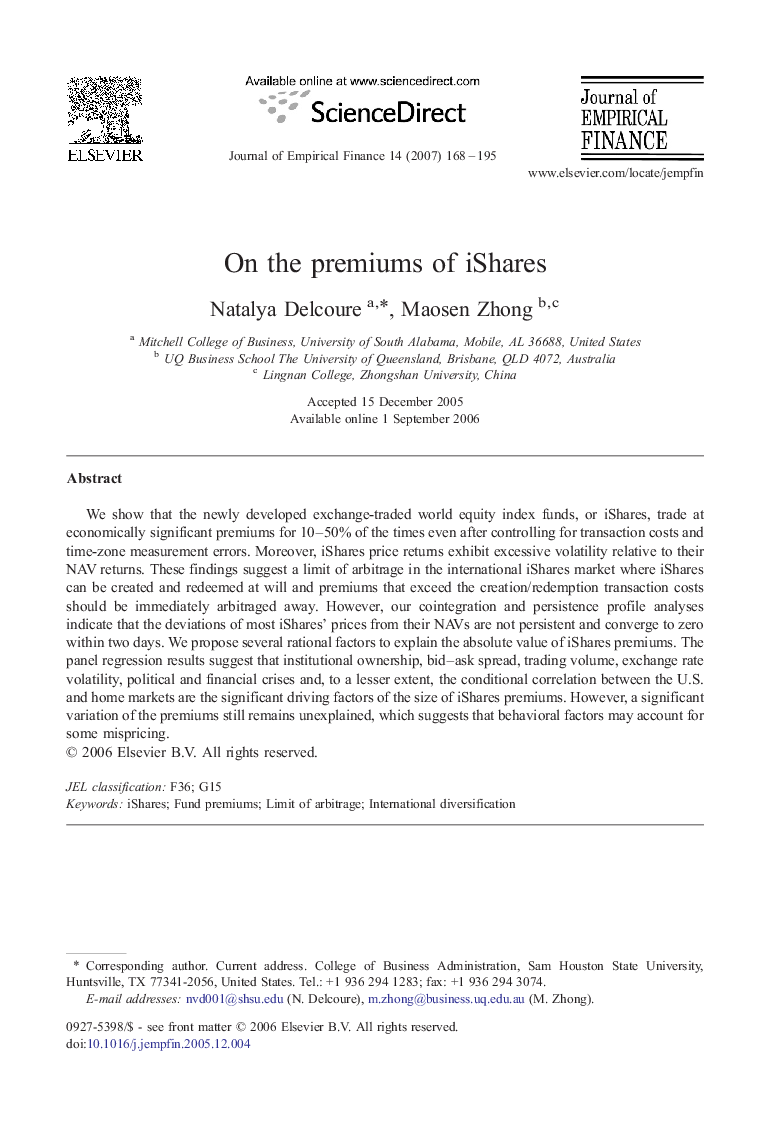| Article ID | Journal | Published Year | Pages | File Type |
|---|---|---|---|---|
| 958916 | Journal of Empirical Finance | 2007 | 28 Pages |
We show that the newly developed exchange-traded world equity index funds, or iShares, trade at economically significant premiums for 10–50% of the times even after controlling for transaction costs and time-zone measurement errors. Moreover, iShares price returns exhibit excessive volatility relative to their NAV returns. These findings suggest a limit of arbitrage in the international iShares market where iShares can be created and redeemed at will and premiums that exceed the creation/redemption transaction costs should be immediately arbitraged away. However, our cointegration and persistence profile analyses indicate that the deviations of most iShares' prices from their NAVs are not persistent and converge to zero within two days. We propose several rational factors to explain the absolute value of iShares premiums. The panel regression results suggest that institutional ownership, bid–ask spread, trading volume, exchange rate volatility, political and financial crises and, to a lesser extent, the conditional correlation between the U.S. and home markets are the significant driving factors of the size of iShares premiums. However, a significant variation of the premiums still remains unexplained, which suggests that behavioral factors may account for some mispricing.
